Tender Law
Your Legal Partner in Government Tender and Procurement Disputes.
Public procurement law in India, GFR 2017, E-procurement, Government e-Marketplace (GeM), CVC Guidelines, Bid Rigging
Public Procurement in India
Services We Offer
Integrity and Oversight Mechanisms
Judicial Principles and Precedents
Competition and Bid-Rigging Control

Why Choose Our Tender Law Services?
Know more about Tender Law in India
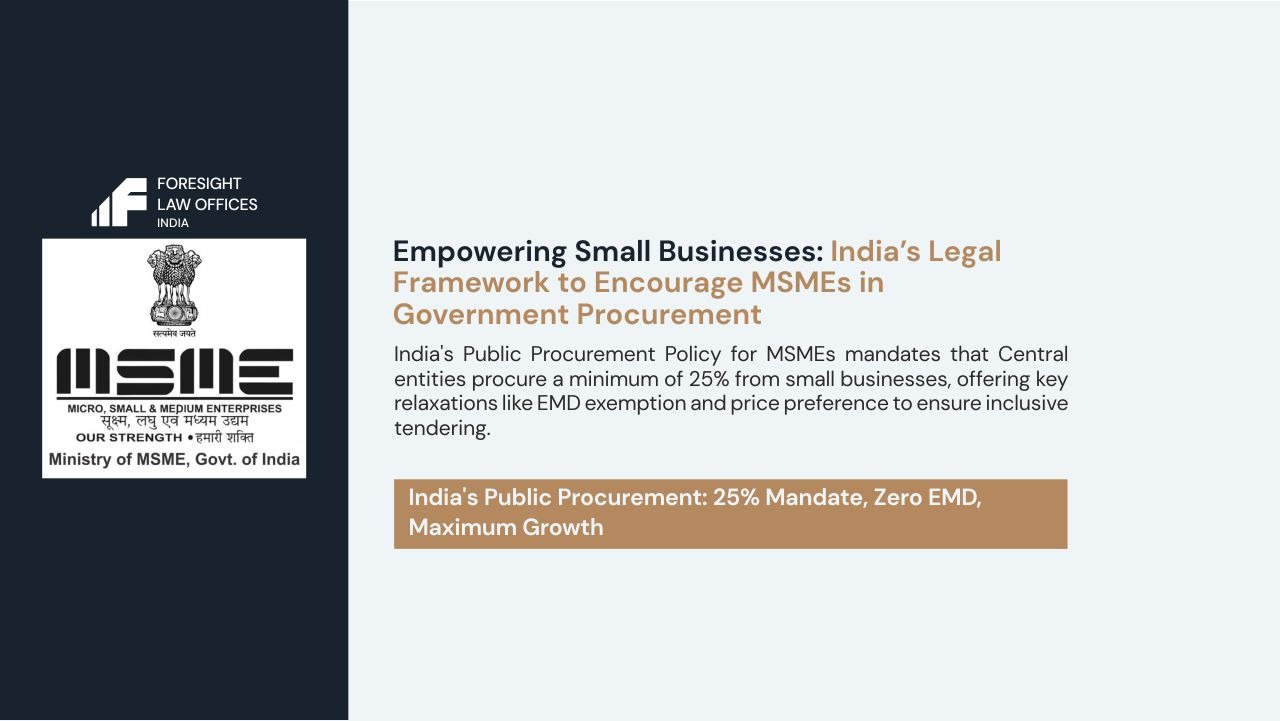
- Rashmita Das
- Corporate Law, Tender Law
The public procurement market, where the government purchases goods, services, and works, is the single largest customer in any modern […]
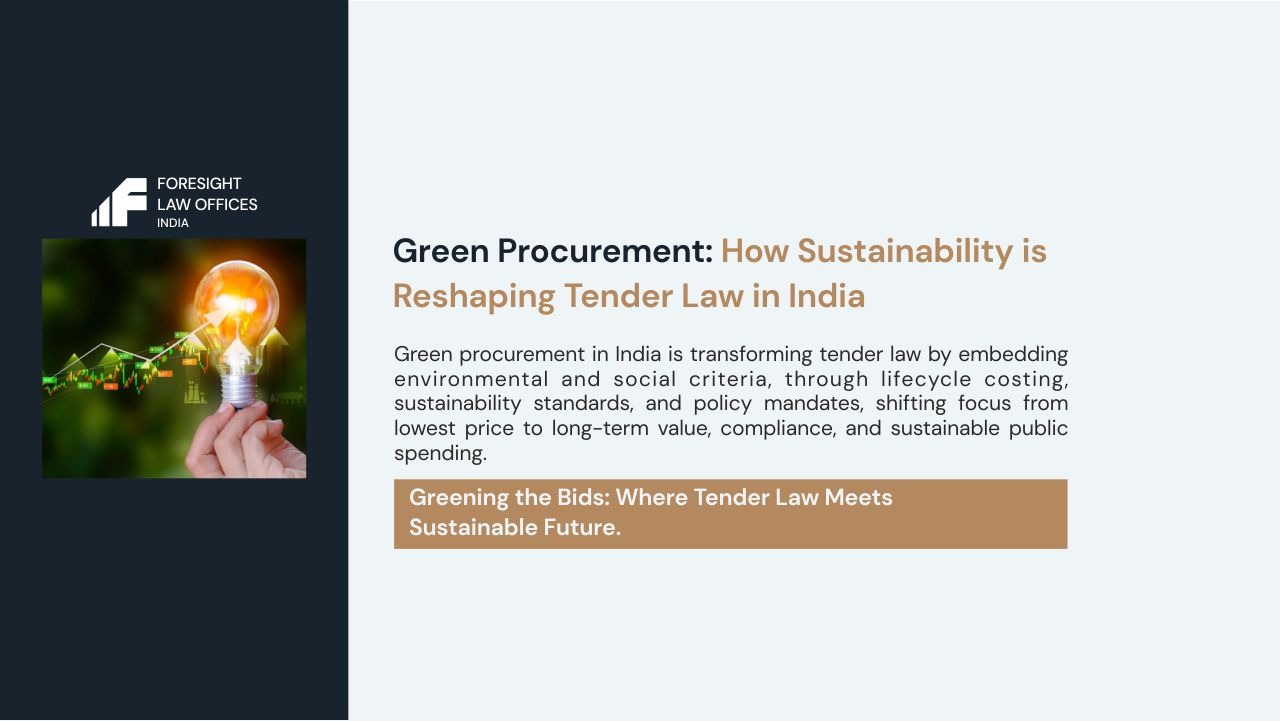
- Rashmita Das
- Corporate Law, Public Procurement, Tender Law
Public procurement, defined as government or public-authority purchasing of goods, services and works, accounts for a substantial portion of public […]
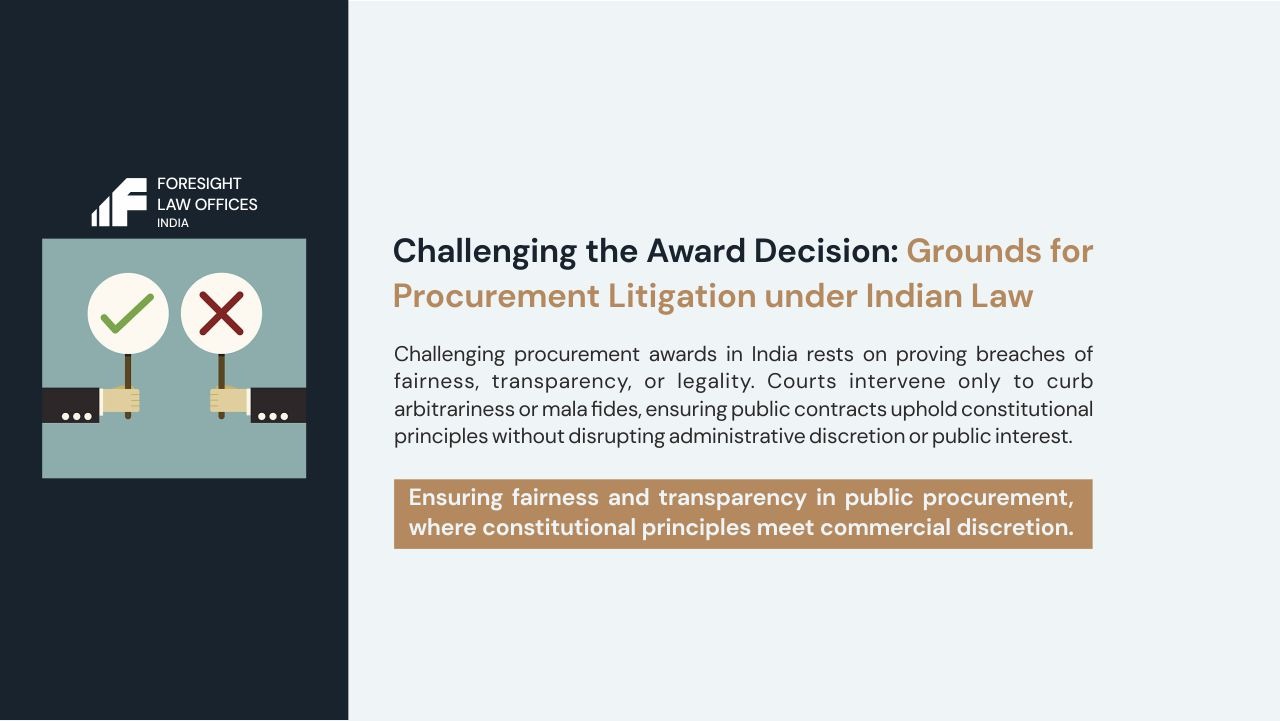
- Admin
- Corporate Law, Tender Law
Introduction Public procurement in India represents a critical intersection of administrative discretion, economic efficiency, and legal accountability. Government contracts form a substantial portion of […]
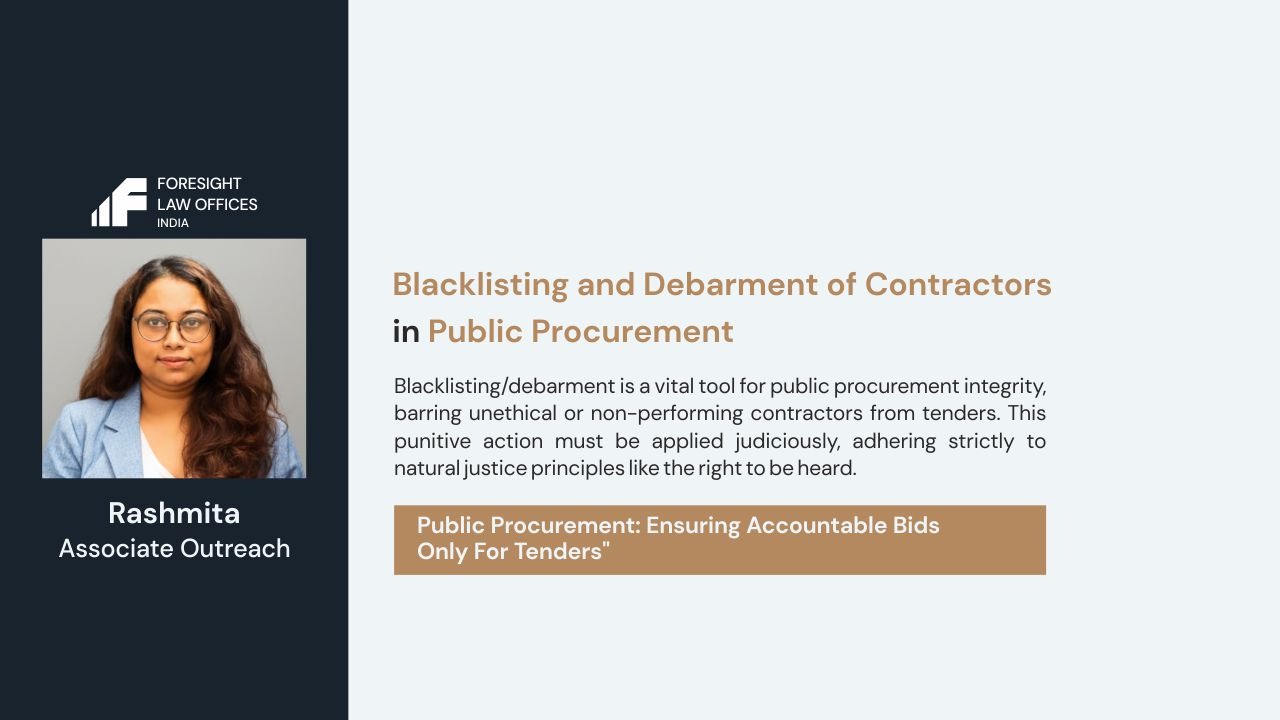
- Rashmita Das
- Corporate Law, Public Procurement, Tender Law
Public procurement plays a vital role in ensuring that public funds are utilized efficiently, transparently, and for the maximum benefit […]

- Rashmita Das
- Corporate Law, Tender Law
The power of a governmental authority or a Public Sector Undertaking (PSU) to blacklist (or debar) a contractor or supplier […]
Litigation Corner
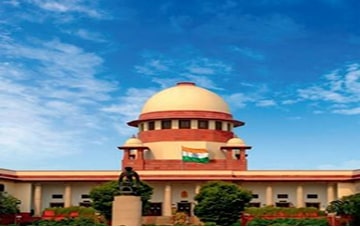
Mls Sapphire Media Services vs Indian Oil Corporation Limited
In this case, M/s Sapphire Media Services challenged the Allahabad High Court’s order dated 22nd May 2023, which dismissed their writ petition against Indian Oil Corporation Limited. The Supreme Court admitted the Special Leave Petition (SLP) on 21st June 2023, with a stay application pending. The matter is scheduled for further hearing.
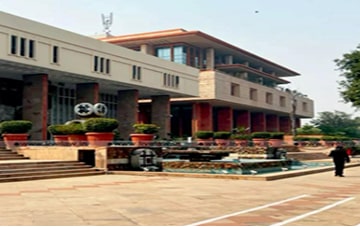
Sapphire Media Services vs Delhi Transport Infrastructure Dev.
Sapphire Media Services filed an application under Section 9 of the Arbitration and Conciliation Act, 1996, seeking interim relief in a dispute related to a media contract with the Delhi Transport Infrastructure Development Corporation. The Delhi High Court examined the matter and provided a judgment based on the facts and legal arguments presented. The details of the judgment are available in the case records.

Mls Proactive In & Out Advertising vs AAI & Ors.
This arbitration related to an advertising contract dispute with the Airports Authority of India. The District Court, Amritsar, supervised the arbitration proceedings and recorded the interim or final orders.














